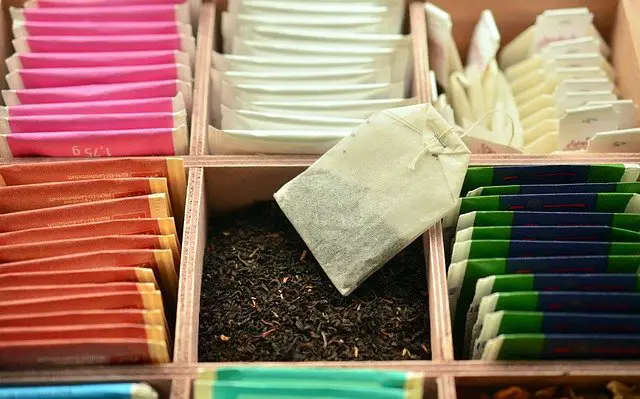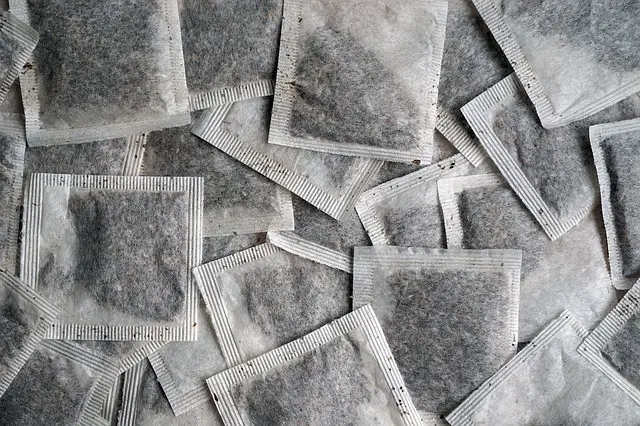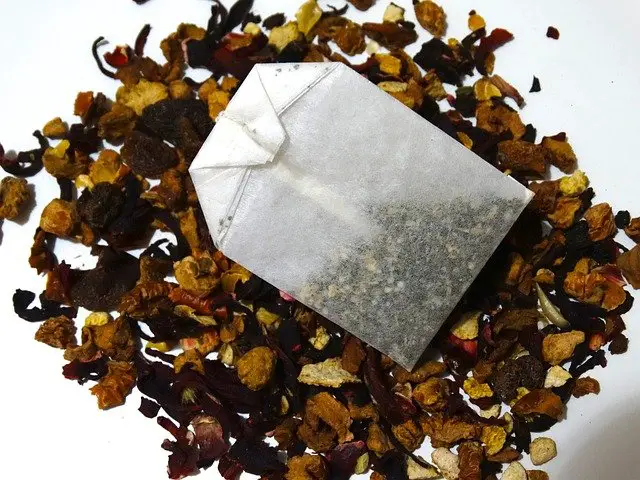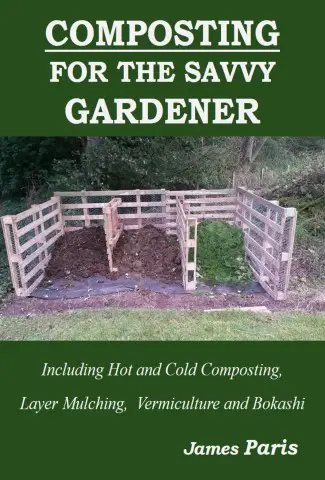This is a question that seems to provoke a lot of debate, and a quick search of the internet will apparently give a lot of conflicting advice on the subject.
However the actual answer is it all depends on the material used in the tea bag production – most of which are made with a certain percentage of plastic.
But not all plastic is equal, and some are using material called PLA (Polylactic acid) which is a plastic made from biological sources like corn starch and is biodegradable. This compares to traditional plastics made from fossil fuels like coal and oil.

Checking out the manufacturers description itself sometimes can be a little misleading as it may well say “plastic free” when in fact it is using PLA – still a form of plastic.
Although PLA is a better choice when it comes to the whole ‘organic’ choice, the fact is that it can only be composted in a commercial composter and not the one at the bottom of the garden!
So before adding tea bags to the compost heap there are a few things you should check to make sure it is compostable.
- If you have the manufacturers box, Check the makers instructions to see what material the tea bag is made from. Though most say nothing at all about the composition of the bag.
- See if the edges of the bag have been heat-sealed. If so then this indicates that either the bag itself has a plastic content, or the seal has plastic.
- Folded paper tea bags with the string attached tend to be plastic-free and compostable
- If in any doubt simply cut the tea bag and add the compost to the compost heap – throw away the tea bag in the non-compostable rubbish bin.
Why is plastic added to tea bags?
It is a matter of expediency. No-one wants the tea bag to burst in the cup and so the solution is to make a stronger tea bag to begin with. This is universally achieved by adding polypropylene strands into the paper to make the bag virtually indestructible.
Some tea bags can have more than 20% polypropylene added for strength, or the bags are paper, but the glue is plastic for sealing and ensuring they do not tear easily.

Nano plastics in tea bags?
Quite apart from the issues surrounding the composting of tea bags, there is another issue with the plastic content overall – and that is Nano plastics being absorbed and retained in our bodies through the drinking of certain tea brewed with these ‘contaminated’ bags.
According to this article in sciencealert.com “If your favourite brand of tea is using plastic teabags, you are probably getting a gutful of microplastics.
A new study has found that a single plastic teabag steeped at a brewing temperature of 95 degrees Celsius releases around 11.6 billion microplastics and 3.1 billion nanoplastics into a single cup.”
Whilst the actual dangers to human health that this may pose is still under investigation – I personally do not like the sound of that at all.
Tea bags that do not have any plastic in them
This is a difficult one…As we have seen many manufacturers claim to have plastic-free tea bags, when in fact they are using PLA – still the better option to be sure as at least it is organic based.
Many tea bag companies are also getting ‘up-to-speed’ with the whole plastic problem and are presently updating their manufacturing process to remove plastic altogether – or at least shift to PLA rather than fossil-based plastic.
Tea bags that are dipped into the tea by a string are usually folded and not heat sealed. This is an indication only that they may not be made from plastic but rather paper or manilla hemp. However the string itself cannot be composted if it is made from nylon and not a biodegradable material like cotton.
Companies that produce plastic-free tea bags.
As mentioned earlier this changes all the time as the company changes their products to meet the demands of the ‘greener’ individual. But as a guide only the following tea companies have plastic free tea bags for sale.
Yorkshire tea, Tetley (stringed tea bags only), Twinnings, Lipton, Harney & Sons, Qi Tea, Pukka.
Bear in mind also that even though the tea bag may be organic and compostable, the seal itself may not be!

Conclusion:
It seems that with all the confusion around the aspect of plastic content in tea bags and the potential for non-compostable tea bags laying in the compost pile forever, I come to the conclusion that the only way to be sure is to empty the contents into the compost and throw the bag in the rubbish bin!
Even the term ‘Biodegradable’ that many folks think enables composting – is not actually the case at all for domestic compost.
The Cambridge dictionary defines Biodegradable as a substance that is “able to decay naturally and in a way that is not harmful to the environment” Credit
However that does not mean you can apply any biodegradable material to your compost, why? Because home composting is ‘designed’ to produce usable compost in anything from 30 days to 3 years.
A biodegradable product made from PLA can last for many years beyond this time before it finally breaks down.
Only industrial composting processes that produce large volumes and involve much more heat than domestic composting, can break down the PLA biodegradable materials that you can find in tea bags as well as other food wrappings.
Tea is rich in nitrogen and of course this makes it a valuable product for the compost and for plant growth, for this reason it is a good idea to compost tea leaves. The only aspect in question here is the composting of the tea bag itself.
Feel free to add tea leaves and yes, coffee grounds to the compost heap to increase the nitrogen content.



